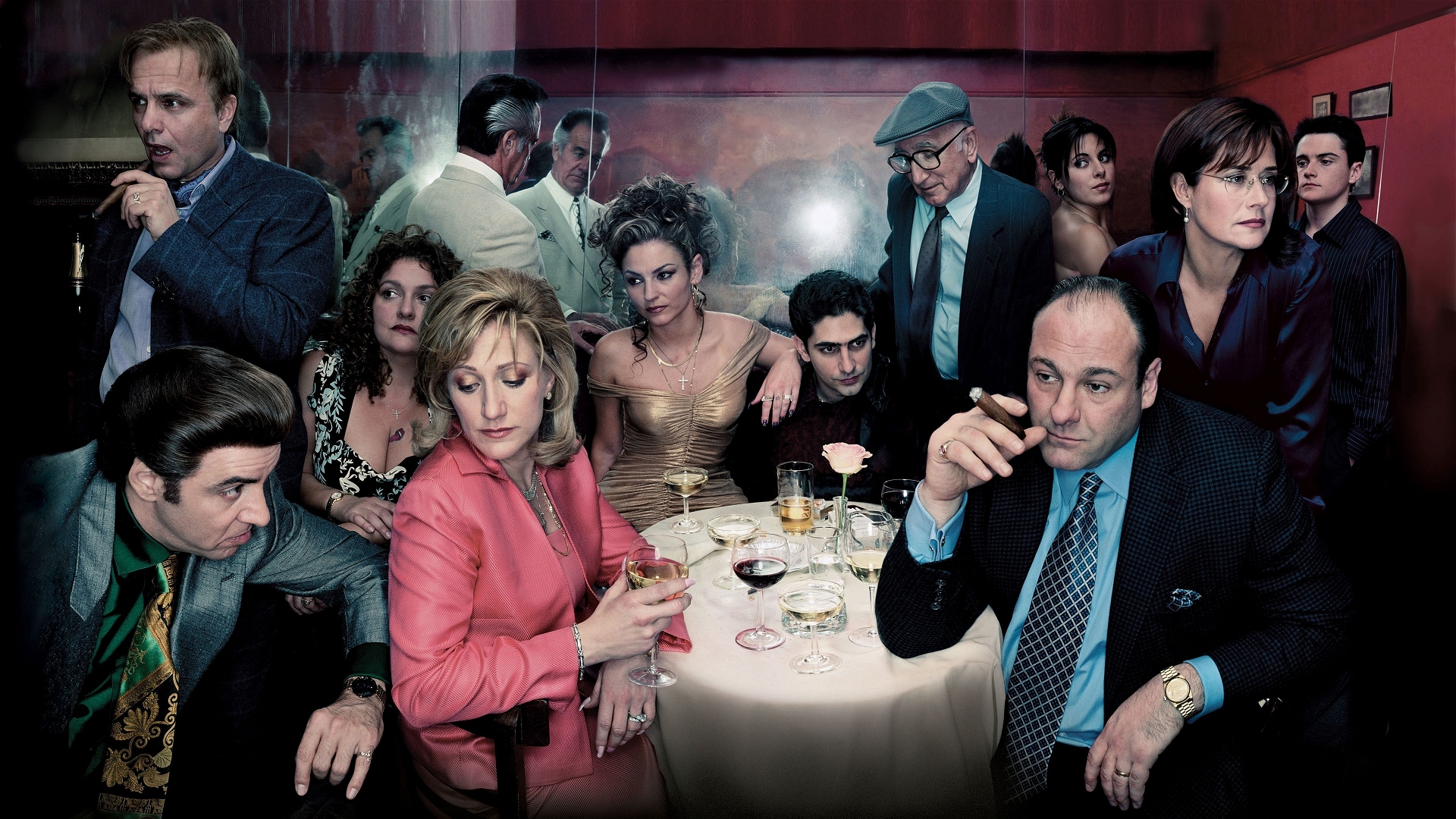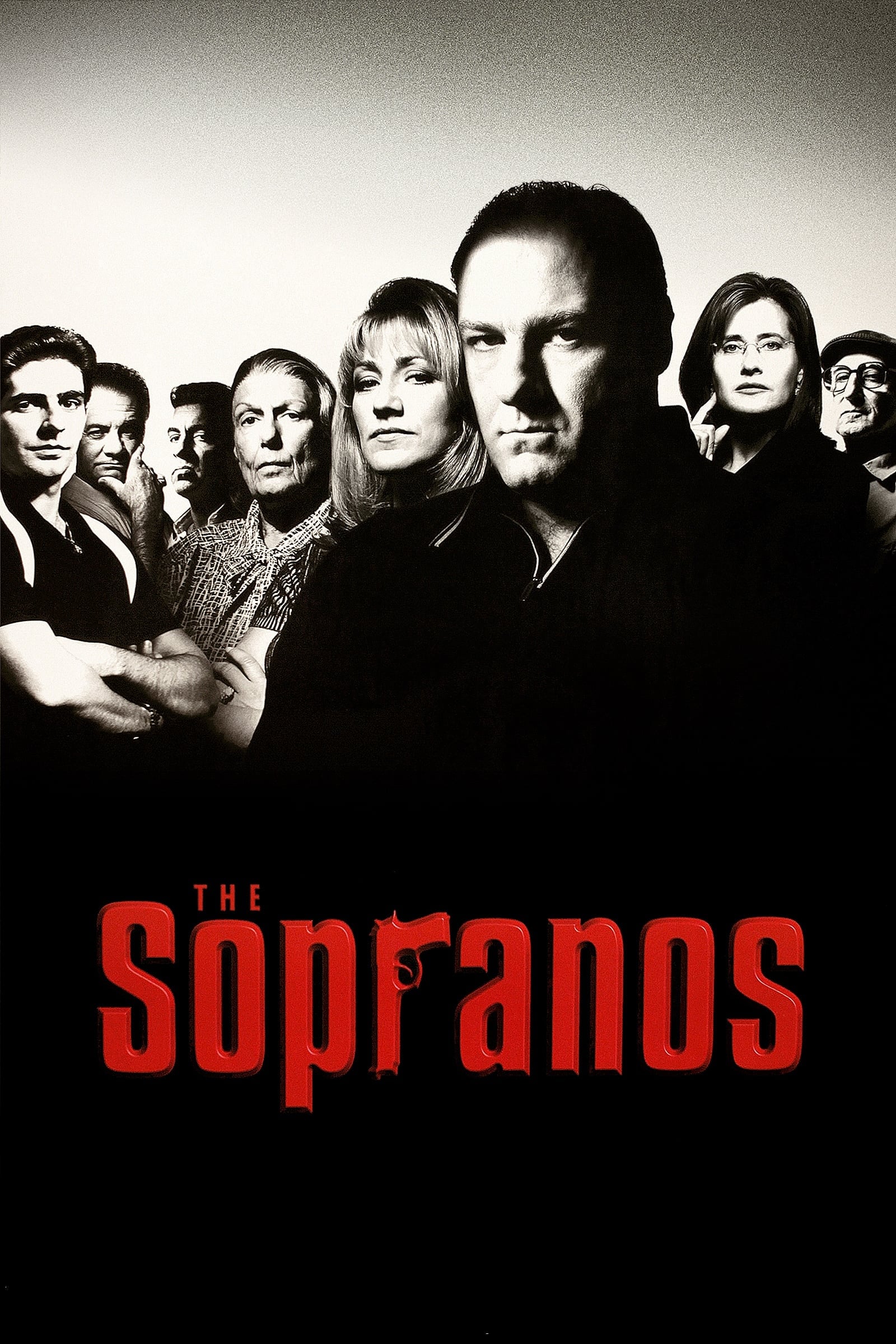
The Sopranos (1999)
The Sopranos (1999)
The Sopranos: the show that defined television
(OBVIOUS SPOILERS)
Going into the sopranos for the first time after watching breaking bad and better call Saul was a lot to live up to. For a show that’s considered the greatest tv show of all time it’s easy to see after watching it why people think it deserves its title. After finishing the show I liked it better than both of the former shows but maybe not as much as my actual favorites. Regardless, The Sopranos is fucking amazing. I was a little apprehensive of the story and characters at first. The first thing I noticed about the show was how casual and laid back it felt. The most interesting part of season one for me was seeing how they structured its most important A plots around Tony’s mom and made all of its “more exciting” crime sub plots more like b or c and d plots. It reversed my expectations. Then at the end of the season they would find a way to link the crime stuff with domestic drama subplots and it all linked together beautifully.
Going into season 2 I didn’t enjoy it Nearly as much as season one and it was probably my least favorite season of the show because I felt like it had the least Tony. I thought after the end of season one, which felt like a lot of character introduction to me the show would devolve into a lot more crime plots and the family stuff would take the backseat but I was wrong again. I was still entertained but it wasn’t until season three that I realized the show was probably going to take this same approach for the whole show, which it did and proved not to be a problem of the show but more of a problem of my expectations.
After that, Trying to pinpoint where Tony is going as character along a linear path of plot progression is impossible. As the show went I realized how constantly non linear and unconventionally written it was with not just Tony but every character. Tony starts out going to therapy to overcome his panic attacks and depression. After a while I was questioning what was Tony’s external goal? In breaking bad Walt wants to be the “best cook” and in better call Saul he wants to “go straight or become the best lawyer.” In the sopranos Tony becomes the boss quickly and he has no real external wants other than…going to therapy which is a completely internal focused character motivation. Tony’s Therapy doesn’t drive the plot as much as it drives his character forward and allows the plot to unfold around that.
Something that further drew me into the sopranos was not just its plot construction which lacked much of an overarching central narrative for each season but also its character building. Tony, in fact, reminded me a lot of Crime and Punishments Raskolnikov whose theories of proto Ubermensch utilitarianism which justified murder were eerily similar to Tony’s own justifications, specifically the argument that”soldiers don’t go to hell. We’re soldiers.” I also say this because Carmela’s one time therapist compares them. The biggest aspect of the Sopranos is Tony’s continual desire to justify his behavior. We think that through therapy Tony is maybe becoming a better person and changing back and forth. It isn’t until the show ends we fully realize he’s only using it to become a worse person. In this sense, Tony is a reverse Raskolnikov because instead of losing his theory and becoming better Tony gains a theory, becoming worse.
As the show goes on Tony eventually comes across the message in the hospital, “Sometimes I go about in pity for myself, and all the while, a great wind Carries me across the sky.” At first Tony uses this message for a boost of short term confidence. Quickly, however, Tony returns to being miserable when he realizes having a positive outlook requires work. Instead of using the message as a way to inspire others, he instead uses it to push them down. He pushes down Vito Jr with it and then kills Christopher when he uses it. Tony hates seeing other people happy like Paulie when he watches tv and attempts to justify killing him, but most importantly he hates seeing himself reflected in others whether it be killing Ralphie because he sees himself in him and projects Tracee onto the dead horse or when he kills Tony B and sees himself as well.
Eventually the person Tony sees himself in the most and eventually grows to hate the most is his cousin, Christopher. Christopher represents hopes and dreams Tony is incapable of achieving. Tony constantly pushes down his screenwriting aspirations because he doesn’t want to see him leaving the life among many things. Once Christopher becomes an addict, he resents him, but once, he recovers he still hates him. Tony hates progress as he gradually begins to accept he’s not changing which should have been obvious when he stated his belief in fatalism. When Ralphie displays sympathy for his family and a sign for change Tony kills him. When Christopher reasserts Tony’s message, it’s implied there’s a chance for change and they crash the car before Tony kills him.
Christopher’s death in Kennedy and Heidi is the final nail in the coffin. Tony accepts he can’t change and that even if he goes to hell it doesn’t matter. Tony then does everything he accuses Christopher of doing by drinking and doing drugs and gambling and also continuing his cheating. Unlike Tony’s coma dream we see a suggested positive change, but in Kennedy and Heidi we don’t see Tony’s peyote dream, instead suggesting negative change. At the episodes end Tony sees a flare of the sun, reminiscent of the flash of the lighthouse in his coma dream. It becomes implied Tony isn’t going to see heaven, but, he’s going to see hell. Whatever he sees, he “gets it.” He isn’t going to try to change anymore.
By the end of that episode on, Tony reaches the climax of his arc and everything that follows is the resolution of the shows whole story. The show becomes less about what Tony is going to do but more about what he has done, what everyone has done, and what people will become. When the show finally ends, it fades to black without resolution to our protagonist. At that point he arguably doesn’t matter objectively and it’s up to the audience more to define what does.
By the time I was done with the show, I felt at its core The Sopranos was very anti-narrative and and often the antithesis of regular storytelling. It doesn’t have much of a central over arching plot, no consistent central antagonist, sub plots often left unresolved, characters introduced abruptly, and so it only makes sense for it to end so abruptly as well. The show so brilliantly shows how we are given so many second chances to change and if we don’t take them we’ll risking missing out on them forever. We’ll fall into the depths of misery unable to escape the fate of our parents and of patriarchy and the norms passed down to us. We won’t change and we won’t get better. The Sopranos is the modern day Aesops Fable, because of this. It’s a perfect piece of cautionary storytelling and one of my favorites altogether, a masterpiece.
Loading





